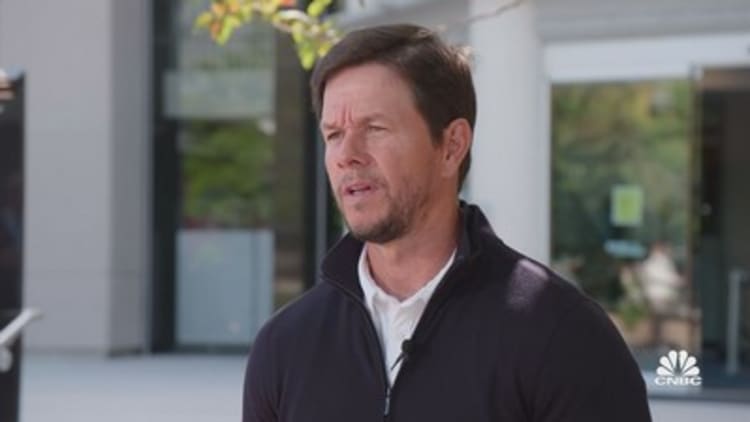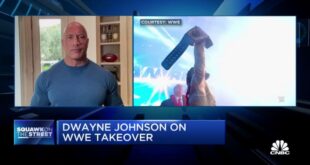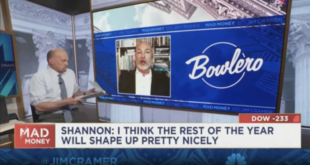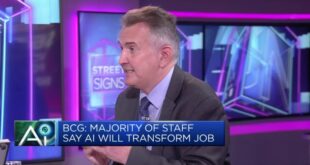
One of Las Vegas’s more famous residents is aiming to work closer to home.
Actor Mark Wahlberg lobbied Nevada state lawmakers Wednesday to pass a bill that would coax more film production to Las Vegas.
“I would love to see us building studios, creating jobs and just diversifying the economy,” Wahlberg told CNBC in an interview outside the Nevada Legislature. “I’ve moved my last film here. I’m shooting another film here coming up in the summertime.”
Nevada state lawmakers are set to vote on a bill that would increase tax credits for film production from $10 million to a whopping $190 million annually over the next 20 years.
“I think there’s so much more opportunity to be created here. There’s so much growth and so much potential, it’s a wonderful opportunity for everybody to prosper,” Wahlberg said.
Proponents of the bill point to Georgia’s tax incentives, which have helped double the state’s film industry jobs since 2011.
“[The bill is] something that’s sustainable, and it goes long term into the future. It provides sustainability for jobs,” said state Sen. Roberta Lange, a Democrat in Las Vegas, who is sponsoring the legislation alongside Birtcher Development, Sony Pictures Entertainment and Howard Hughes Corp.
Sony Pictures CEO Tony Vinciquerra appeared virtually before state legislators Wednesday to lobby for the passage. The electronics giant has committed to spend $1 billion on film production in Nevada over a decade, but only if the tax incentive package, known as the Nevada Film Studio Infrastructure Act, passes.
Howard Hughes CEO David O’Reilly also spoke in support of the incentives, appearing before legislators in person Wednesday. The company has promised to invest $700 million to build a movie studio campus in the Summerlin, a community in southern Nevada, if the bill passes.
“Our employees and the future of Summerlin are inextricably linked with the Nevada economy,” O’Reilly said. “If we can strengthen, diversify and grow by bringing the film industry here, that will benefit all of us.”
The proposed bill would clear the path for development of two movie studio sites: Howard Hughes’ location in Summerlin and another by Birtcher called Las Vegas Media Campus. That studio would sit on the University of Nevada Las Vegas technology park, which would also include educational facilities for job training in the film industry.
Once those studios are up and running, production companies could apply for tax credits which would make up 30% of production and construction costs for films, up from the current level of 15%. The credits would be transferrable, meaning they could be sold to other companies.
“That money is only earned if money is spent here,” O’Reilly told CNBC. “For a company to earn $190 million tax credit … they would have to spend $633 million filming and creating economic development for this whole valley.”
O’Reilly noted that if Sony gets the tax incentives it’s hoping for, the promised investment will bring an estimated 16,000 jobs to the region, with most of them unionized, plus as many as 10,000 construction jobs.
Opponents of the tax incentives argue the state’s financial resources could be more efficiently deployed elsewhere. Other states have seen film production tax credits become a financial drain, according to analysis by the Nevada Policy Research Institute.
“Despite the allure and glamour of the film industry, the hard economic reality is that these tax credits often struggle to pay for themselves, let alone generate a surplus,” the organization said in a statement to CNBC.
Diversifying the landscape
Nevada’s economy is booming, largely due to the gaming and tourism industry. The state just set a record with $1.1 billion in monthly gross gaming revenue, the best April ever for GGR. That makes the 26th month in a row that Nevada GGR has topped $1 billion.
And in 2022, 43% of Nevada’s gross domestic product came from the state’s tourism industry, amounting to $90.7 billion in economic impact, according to the Nevada Resort Association.
The state’s reliance on gaming and leisure have proven problematic in the past, most recently during the recent Covid lockdowns and associated travel restrictions.
Northern Nevada has succeeded in enticing tech companies to relocate there, most notably the Tesla Gigafactory.
— CNBC’s Jessica Golden contributed to this report.
 EU News Digest Latest News & Updates
EU News Digest Latest News & Updates



